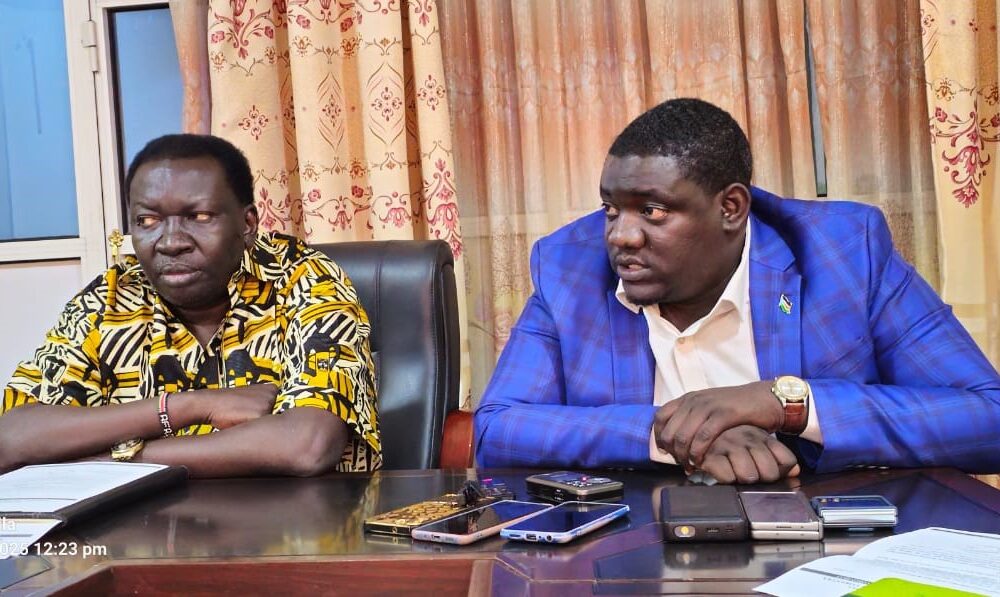By Yiep Joseph
Water bottling companies resumed operations after a three-day shutdown triggered by high import costs for plastic materials.
The shutdown, which began on Monday, stemmed from exorbitant charges imposed on plastic imports by the government’s implementing agency, PLASCOM.
The Ministry’s policy mandates a fee of $0.01 for every 600ml bottle and $0.02 for bottles ranging from 600ml to 1.5 litres.
However, in a press conference yesterday at the Ministry of Environment and Forestry, Adam Kubanja, Chairperson of the Association of South Sudan Manufacturers (ASSM), declared the resumption of bottling water factories.
He noted that representatives from the water companies, along with members of the manufacturer’s association, met with officials from the Ministry of Environment and Forestry to agree on the fee structure.
He clarified that the situation stemmed from a misunderstanding regarding the charges related to plastic at the Nimule border, which involved the governor.
Kubanja indicated that the water bottle companies have resumed their operations and will be able to pay the fees as outlined.
“As we speak today, all the factories that had shut down have resumed their operations,” he declared.
“There has been a stalemate that started this Monday, the 20th, but today we have reached a resolution,” he added.
He added that the water factors have understood the fees and are able to pay as requested.
Kubanja claimed that the water bottle companies also commit to keeping the environment clean and would respect government decisions.
On his part, Joseph Africano Bartel, undersecretary at the Ministry of Environment and Forestry, declared that the factors and the ministry have agreed hence resumption.
“We are glad to inform the public that the water bottling companies have resumed their operations today, 23rd January 2025, and will be paying the environmental fees accordingly,” he said.
This stalemate has been cleared, and we do not have issues with the association of manufacturers or the factories, he added.
He added that after meeting the managers of the water factories, the Ministry of Environment and Forestry reiterated that fees were legal and companies have to pay.
The shutdown had sparked widespread concern among the population, particularly in Juba, where access to clean drinking water heavily relies on bottled water.
Government operations were also at risk of disruption, as many offices depend on these factories for potable water.
Moreover, the shutdown threatened the livelihoods of numerous employees within the water bottling industry.
Over sixty trucks carrying preforms (materials for making bottles) were stranded at the Nimule border due to the high import costs, further exacerbating the situation.
In 2024, Simon Akuei Deng, Chairperson of the South Sudan Revenue Authority (SSRA), encouraged both local and international businesses to comply with the new Financial Act for 2024–2025.
He called on the private sector to support the government in financing the budget by paying taxes.
“We need your support as the private sector because no country can function without a strong private sector.
Civil servants and the private sector together encompass the nation we call South Sudan today,” he said while addressing participants during a quality award event in Juba.




